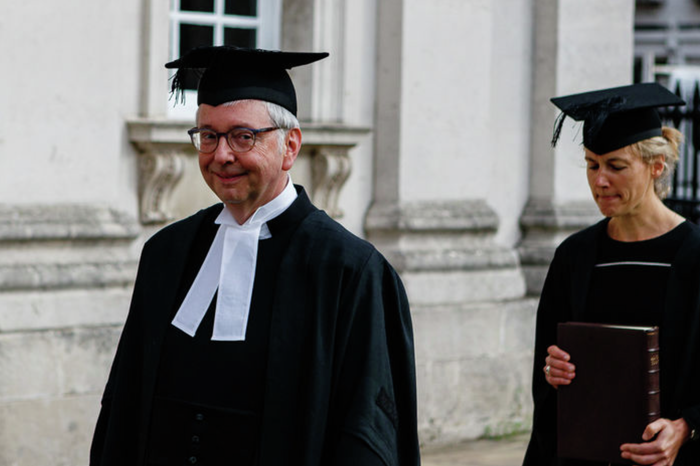Why private schools should be abolished
In her first piece of term, columnist Bella Cross puts forward the case against private schools

Private schools are not just a form of educational privilege, but a way of socially segregating classes from a young age. Thus far, the conversation has focused on the disparities in teaching standards, extra-curricular opportunities, connections, access to information about university and cultural capital gained in a private education. This has demonstrated that meritocracy remains a fallacy. Of course, there are discrepancies between schools and the backgrounds of those attending, but a fixation on these differences merely shifts the conversation into semantics that distract from the fundamental and deliberately constructed privilege of a select minority of children in the UK.
“There is a direct correlation between this entrenched division and some of the most toxic elements of our political culture”
Schools are a formative place for children, in which they come to understand themselves and learn to interact with one another. Ensuring children are not socialised to know people of different backgrounds facilitates the wilful ignorance, elitism and denial of empathy that plagues our culture. There is a direct correlation between this entrenched division and some of the most toxic elements of our political culture, and, I believe, at Cambridge as well. During just the first few weeks of my time at Cambridge I had multiple people deem it appropriate to imitate my accent, refer to things as chavvy, and make other brazen classist statements. A conversation that sticks out to me today is when asked where I am from, the person responded calling it a “shithole”. From conversations with friends, this seems to be a common experience across the university, and of course a shared experience with other oppressed groups.
If we take the optimistic view — that there is genuinely an ignorance to the poverty faced by many in the UK by the elite (a view increasingly hard to justify considering the freely accessible and highly publicised discussion of this online) — then private schools as an initial place of separation can be seen to be at fault. If we take the more cynical view that this ignorance is a fallacy and there is a genuine disregard for those suffering, then this separation at a young age arguably becomes even more concerning. Private schools create a self-enforcing echo chamber whereby youth are raised with the ability to effectively turn a blind eye to the inequalities within the UK today. A whole class is free to ignore this hardship and abstract it as a theoretical problem from its real human consequences.
“All children and humans alike are deserving of equal access to education”
When the elite are forced to confront the poverty in this country, they are effectively able to shift the blame onto individuals. Neoliberalism’s undermining of the sense of community within the UK has contributed to these narratives. By allowing individual blame to be cast on those suffering in poverty, poverty’s systemic roots can be ignored. Headlines like “Single-mother of six who gets by on benefits but spends £300 on lip fillers” demonstrate how pervasive this narrative is. Not only does this perpetuation of negative stereotypes around working-class people distract from the systemic impoverishment of many people in the UK, but it is used to fulfil a violent political agenda that paints (more often than not, women and people of colour) as undeserving of basic human needs.
This is clearly reflected in the appalling and brazen dismissal of hardship, demonstrated just this week by Boris Johnson in his callous response to the pensioner who said they are forced to ride buses all day because they can’t afford to heat their home. Advocates for educational equality have thus misplaced their justification, relying on the figure of the child as a symbol of uncorrupted innocence as deserving. This plays directly into this neoliberal individualism that equates our worth to our perceived value we contribute to society. This is a fundamentally classist and ableist narrative, and all children and humans alike are deserving of equal access to education (and other public services) on the basis that they are human, not on their ability to prove any deservingness.
The abolition of private schools inevitably would not immediately destroy hundreds of years of generational privilege and wealth in the UK. It would, however, disrupt this very specific form of social segregation and exclusion. I choose to believe that we all have the capacity for empathy — it is possible to build a more positive and compassionate society. Of course, it would be an injustice to imply in any way that empathy and a private school education are mutually exclusive. However, private schools are designed to create this physical separation between children based on wealth, which breeds animosity and entrenches prejudices. In preventing this physical and immediate separation of children, there is hope in offering a better foundation for the rebuilding of community. Private schools, therefore, are intended to operate as a separatory power between the classes — and they are successful at this. Abolishing them would challenge this and disrupt the dehumanisation of the working class that the separation facilitates.
 Comment / College rivalry should not become college snobbery30 January 2026
Comment / College rivalry should not become college snobbery30 January 2026 Features / Are you more yourself at Cambridge or away from it? 27 January 2026
Features / Are you more yourself at Cambridge or away from it? 27 January 2026 Science / Meet the Cambridge physicist who advocates for the humanities30 January 2026
Science / Meet the Cambridge physicist who advocates for the humanities30 January 2026 News / Cambridge study to identify premature babies needing extra educational support before school29 January 2026
News / Cambridge study to identify premature babies needing extra educational support before school29 January 2026 News / Vigil held for tenth anniversary of PhD student’s death28 January 2026
News / Vigil held for tenth anniversary of PhD student’s death28 January 2026











